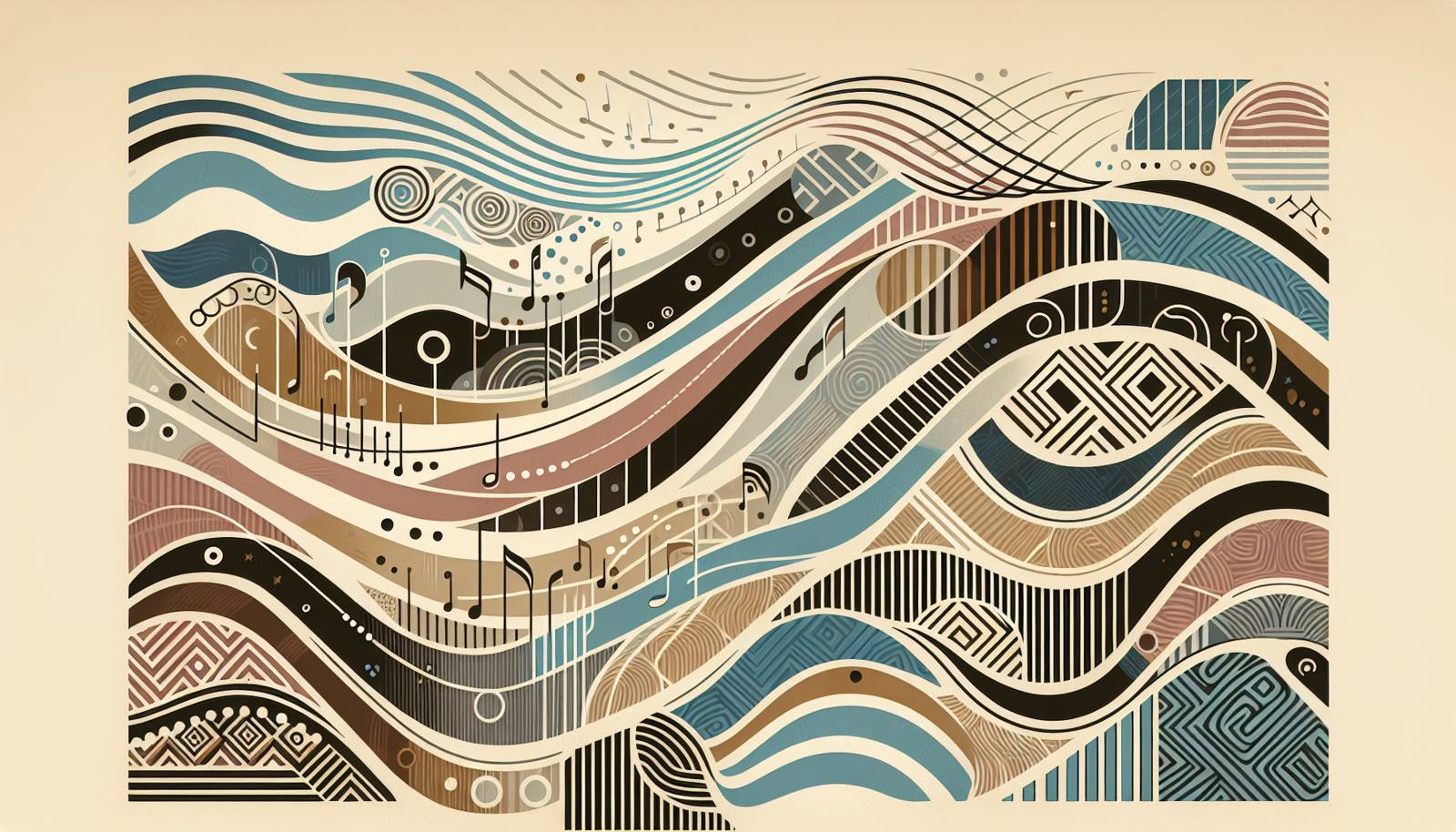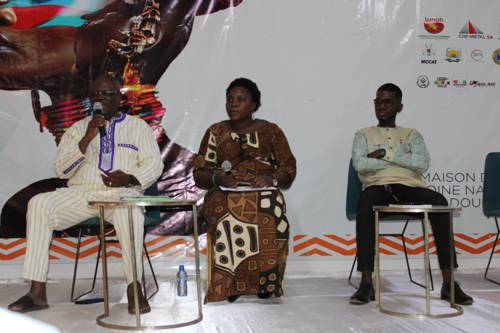
FAQ About The Role of Afrobeat in International Music Festivals

What is Afrobeat and how did it originate?
Afrobeat is a music genre that combines West African musical styles such as traditional African rhythms, highlife, and Yoruba music with influences from jazz, funk, and soul. It originated in the 1960s and 1970s, primarily attributed to Nigerian musician Fela Kuti, who was a pioneer in blending these diverse sounds to create a distinct musical genre that also functions as a form of political expression.

How has Afrobeat influenced international music festivals?
Afrobeat has significantly influenced international music festivals by embodying cultural diversity and offering a vibrant, rhythmic alternative to mainstream music. Many festivals have integrated Afrobeat into their lineups, showcasing not only the genre's dynamic beats but also its ability to engage audiences worldwide, encourage cultural exchange, and introduce festival-goers to a blend of traditional and contemporary African sounds.

Which are some notable international music festivals that feature Afrobeat?
Notable international music festivals featuring Afrobeat include the Montreux Jazz Festival in Switzerland, Coachella in the United States, and WOMAD (World of Music, Arts and Dance) festivals across the globe. These events play a crucial role in bringing Afrobeat to a wider audience, emphasizing its role as a global cultural movement.

Why has Afrobeat gained popularity in recent years?
Afrobeat has gained popularity in recent years due to its infectious rhythms, danceable grooves, and the increasing globalization of music. The genre's fusion of traditional and modern elements appeals to diverse audiences. Additionally, artists like Burna Boy, Wizkid, and Femi Kuti have successfully brought Afrobeat into the international music scene, contributing to its growing recognition.

What impact does Afrobeat have on cultural fusion at music festivals?
Afrobeat fosters cultural fusion at music festivals by blending traditional African sounds with various global music influences. This promotes cultural exchange and appreciation, allowing audiences from different backgrounds to connect through the universal language of music. It also encourages collaborations between artists from different cultures, further enriching the musical landscape.

How do Afrobeat artists typically perform at international festivals?
Afrobeat artists typically deliver high-energy performances at international festivals, often incorporating live bands, dancers, and vibrant stage designs that emphasize the genre's lively and rhythmic nature. These performances are not only about music but also about storytelling, cultural representation, and audience interaction, making them memorable experiences for festival-goers.

What are some challenges Afrobeat faces in international music festivals?
Afrobeat faces challenges such as being pigeonholed as "ethnic" music, leading to limited exposure compared to mainstream genres. There's also the difficulty of translating its often political and culturally specific lyrics to a global audience. However, ongoing efforts by Afrobeat artists and festival organizers aim to overcome these barriers by emphasizing the music's universal appeal and rhythmic allure.

How does Afrobeat contribute to the diversity of music festivals?
Afrobeat contributes to the diversity of music festivals by adding a unique, energetic sound that broadens the musical offerings available. Its inclusion not only attracts a wider demographic of attendees but also educates audiences about different cultures through music. The genre’s rhythm and beat create a lively atmosphere that enhances the festival experience for all participants.

Are there specific Afrobeat-themed music festivals worldwide?
Yes, there are specific Afrobeat-themed music festivals worldwide. One prominent example is Felabration, held annually in Lagos, Nigeria, to celebrate the life and music of Fela Kuti. Additionally, other festivals like Afro Nation have been established in various locations and focus exclusively on promoting Afrobeat and other African music genres to a global audience.

What role do collaborations play in Afrobeat's presence at music festivals?
Collaborations play a significant role in Afrobeat's presence at music festivals by introducing the genre to broader audiences and fostering cross-cultural musical partnerships. Collaborations between Afrobeat artists and international stars help bridge cultural gaps, create innovative sounds, and bring diverse fanbases together, thus enhancing the genre's global appeal and reach.

How has digital media facilitated the spread of Afrobeat in festivals worldwide?
Digital media has been instrumental in spreading Afrobeat beyond its origins by enabling global access to the genre. Platforms like YouTube, Spotify, and Apple Music allow Afrobeat artists to reach international audiences, while social media helps promote their music and festival performances. This exposure aids in the genre's inclusion in festival lineups and its growing popularity worldwide.

What influence does Afrobeat have on festival fashion and style?
Afrobeat influences festival fashion and style significantly, often featuring colorful, bold, and traditional African textiles. Attendees and performers alike embrace styles that reflect African cultural heritage, such as Ankara prints, beaded accessories, and intricate hairstyles. This not only promotes cultural awareness but also celebrates diversity and creativity in festival fashion.

How does the political message of Afrobeat resonate at international festivals?
Afrobeat often carries a strong political message rooted in its origins, addressing issues like social justice, corruption, and African identity. At international festivals, these messages resonate with audiences who seek music with meaning and depth. While the specifics may vary, the overarching themes of resistance and resilience connect with global movements for change, making Afrobeat a compelling genre with substance at festivals.

What role do traditional African instruments play in Afrobeat performances at festivals?
Traditional African instruments, such as the djembe, talking drum, and shekere, are pivotal in Afrobeat performances for adding authentic sound and rhythm. These instruments, combined with modern elements like brass sections and electric guitars, create a unique auditory experience that defines Afrobeat. Their inclusion enriches the performance, highlighting the genre's roots and cultural significance.

Who are some iconic Afrobeat artists often featured at international festivals?
Iconic Afrobeat artists frequently featured at international festivals include Fela Kuti, who set the foundation of the genre, and his son Femi Kuti. Other prominent artists such as Burna Boy, Wizkid, and Yemi Alade also carry the torch in contemporary Afrobeat music, showcasing the genre's evolution and continued influence on the global stage.

How do international audiences typically respond to Afrobeat performances?
International audiences often respond enthusiastically to Afrobeat performances, drawn by the music's rhythmic and danceable nature. Even those unfamiliar with the genre find themselves engaged by its infectious energy and lively beats. The genre's ability to evoke joy and communal dancing adds to its appeal, fostering a positive and vibrant atmosphere at festivals.

What makes Afrobeat unique compared to other music genres performed at festivals?
Afrobeat is unique due to its blend of traditional African music with Western genres like jazz, funk, and soul, creating a rich and complex sound. Its emphasis on rhythm, political storytelling, and cultural expression distinguishes it from other genres. This uniqueness not only enriches music festivals with diverse sounds but also offers audiences a profound and historically rooted musical journey.

How can festival organizers better integrate Afrobeat into their events?
Festival organizers can better integrate Afrobeat by actively seeking and booking Afrobeat artists, incorporating Afrobeat-themed activities, and promoting the genre in festival marketing strategies. Partnering with African cultural groups and artists can also provide authenticity and ensure respectful representation of the genre's roots, enhancing the festival experience for diverse audiences.

What future trends might influence the role of Afrobeat in international festivals?
Future trends that might influence Afrobeat within international festivals include increased collaborations with artists from various genres, technological advancements in music production, and the growing trend of cultural appreciation and diversity in entertainment. These factors could lead to more innovative performances and greater acceptance and recognition of Afrobeat on global stages.

How does Afrobeat expand its influence beyond music at international festivals?
Afrobeat expands its influence beyond music at festivals by impacting art, fashion, and cultural exhibitions that often accompany these events. Its presence encourages the celebration of African culture through various mediums, creating a holistic cultural experience. This multifaceted approach not only highlights Afrobeat as a musical genre but also as a catalyst for broader cultural engagement and exchange.
